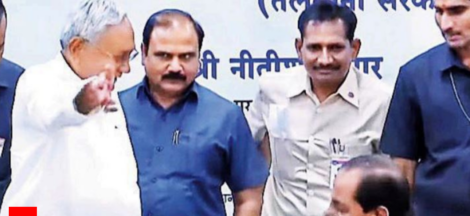By Amritananda Chakravorty
In a keenly watched matter, the Supreme Court upheld
the constitutional validity of the Insolvency and Bankruptcy Code, 2016 (‘IBC’)
last week in its entirety. The IBC was enacted in 2016 with the intention to
amend the laws relating to reorganisation and insolvency resolution of
corporate persons, partnership firms and individuals in a time-bound manner. It
sought to provide for adjudicating authorities for resolution of insolvency,
liquidation and bankruptcy. Since its enactment, the various aspects of the IBC
came under challenge, especially from promoters, and corporate debtors who
resisted the efforts to formulate resolution plans, in order to pay back the
creditors. Accordingly, the validity of the IBC was challenged in a series of
petitions, wherein it was argued that the members of the National Company Law
Tribunal (‘NCLT’), and the National Company Law Appellate Tribunal (‘NCLAT’)
are tasked with judicial functions, but they are not appointed in a similar fashion,
as adopted for the judges of the High Courts. It was argued that since the
NCLAT had almost ousted the High Court’s jurisdiction, the members had to be
appointed, keeping in mind the independence of judiciary. Further, it was
argued that IBC treated operational creditors differently from the financial
creditors, resulting in hostile discrimination, since the former has no say in
the committee of creditors tasked with the job of preparing the resolution plan
for the corporate debtor.
The Supreme Court in a detailed judgment referred to
the state of affairs before the IBC was promulgated, and how the insolvency
process in India was fragmented amongst several legislations, including Sick
Industrial Companies (Special Provisions) Act, 1985 and the Recovery of Debts
Due to Banks and Financial Institutions Act, 1993, thereby resulting in huge
delays in the insolvency process, as well as in debt recovery. The Court then
discussed the issue whether the judiciary should refrain from interfering in
policy decisions, in the context of economic legislations. The Court noted that
it has been a long standing view that the “Court must defer to legislative
judgment in matters relating to social and economic policies, and must not
interfere, unless the exercise of legislative judgment appears to be palpably
arbitrary.” Though well-intentioned, this opinion is not devoid of problems,
especially when the legislature adopts anti-poor measures, or follows a path of
economic reforms, unmindful of its impact on the poor and marginalised
communities of India. The Apex Court’s reasoning to this effect in cases
pertaining to economic policies like in the cases ofBALCO Employees Union v.
Union of India [(2002) 2 SCC 33], and
Narmada Bachao Andolan v. Union of India [(1999) 8 SCC 308] has come under
heavy criticism, owing to this blind deference to ‘legislative wisdom’, which
may not be in fact so ‘wise’.
In terms of the object of the IBC, the Court held that
“the primary focus of the legislation is to ensure revival and continuation of
the corporate debtor by protecting the corporate debtor from its own management
and from a corporate death by liquidation. The Code is thus a beneficial
legislation which puts the corporate debtor back on its feet, not being a mere
recovery legislation for creditors. The interests of the corporate debtor have,
therefore, been bifurcated and separated from that of its promoters/those who
are in management”. Thus, the intent of the Code is not to initiate liquidation
of the corporate debtor, but to prepare a resolution plan, and only if the
resolution plan could not be prepared, liquidation to be used as a last resort.
The Court further notes the difference between the
operational creditors and the financial creditors, where the Code could be
triggered by any financial creditor in case of a ‘default’, while the
operational creditor first has to issue a ‘demand notice’, which then must be
replied to within a stipulated time.The Supreme Court then held that the
distinction has an intelligible differentia, since the financial creditors,
involving banks and financial institutions, are secured creditors with a larger
debt, and are fewer in number, while the operational creditors are those who
are unsecured, involving payments for goods and services. In fact, the nature
of contracts between the financial creditors and the operational creditors also
remain totally distinct, with the former having written loan agreements for a
long term loan or for working capital, which often is not the case with latter.
Further, the Court noted that the financial creditors have a stake in the
viability of the corporate debtor, but the operational creditors, who are only
concerned with the payment of their dues.
With respect to the absence of operational creditors
on the committee of creditors tasked with the responsibility of restructuring
of the assets of the corporate debtor, the Court held that the Code has enough
provisions to ensure that the operational creditors are treated in an equitable
and fair manner, and the resolution plan ought to give priority to the payments
due to them over the financial creditors. Accordingly, the Code was held to be
constitutional and not violative of Article 14 of the Constitution.
As noted before, the functioning of the IBC has been
quite riddled with hiccups, both legal and logistical, and only now the path
appears to have smoothened out. Admittedly, the resolutions plans have been
quite less, i.e., up to December, 2018, 1500 cases have been admitted by the
authorities, out of which, only 79 resolutions plans have been approved. Even
where approved resolution plans exist, buyers are difficult to find for
corporate debt restructuring. It is hoped that the IBC would now be implemented
in its true spirit, and the huge debts accrued to the public sector banks could
be recovered now. [Swiss Ribbons v Union of India, Writ Petition (Civil) No. 99
of 2018, date of judgment: 25.01.2019]
(IPA
Service)
The post Supreme Court Upholding Insolvency Code Is A Big Relief appeared first on Newspack by India Press Agency.


